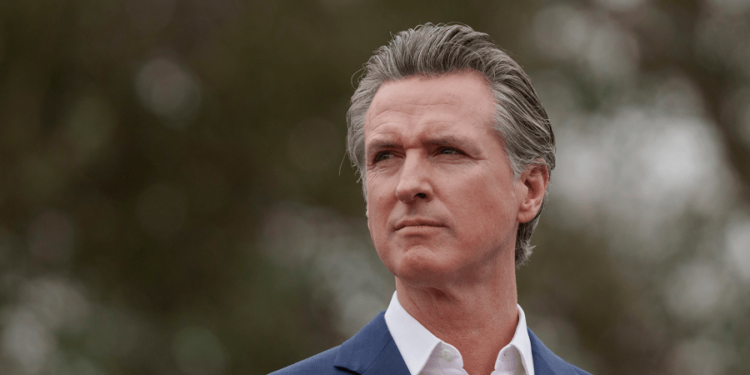
California lawmakers on Monday are kicking off a special legislative session in what Gov. Gavin Newsom (D) has deemed efforts to “Trump-proof” the Golden State from potential federal interference.
Newsom will be seeking up to $25 million for the California Department of Justice and state agencies during the session, with the goal of preventing “unconstitutional or unlawful federal government actions,” the governor’s office announced in a “special session proposal” fact sheet.
“In response to the next administration’s proposed agenda, California is preparing to counter any unlawful attacks against the Golden State,” Newsom stated Monday on the social platform X.
The proposed “litigation fund” would serve to bolster California’s legal resources in response to the incoming Trump administration, preparing the state to “challenge federal overreach in court and take administrative actions to reduce potential harm,” according to the proposal.
News of the special session emerged two days after the presidential election, when Newsom issued a proclamation on the matter and stressed the importance of preserving civil rights ahead of the incoming Trump administration.
Right after Newsom announced he would convene the special session last month, Trump fired back on Truth Social, accusing the governor of trying to stop “all of the GREAT things that can be done to ‘Make California Great Again.'”
Meanwhile, California Assembly Minority Leader James Gallagher (R) described Newsom’s efforts as “a shameless political stunt.”
The special session begins Monday afternoon, alongside the beginning of California’s regular session. Unlike the contents of regular session meetings, topics included in special sessions are limited to those specified in the governor’s proclamation, according to the California Constitution.
Among the concerns listed by Newsom in the proclamation were attacks on reproductive freedoms, a possible repeal of Deferred Action for Childhood Arrivals, the separation of migrant families, the retention of disaster aid as political retribution and the politicization of grant programs.
The proclamation also expressed alarm about California’s long-standing environmental protections, as well as the fate of clean vehicle policies.
With specific regard to the latter issue, Newsom last week committed to reviving the Golden State’s electric vehicle (EV) rebate program if the incoming Trump administration scraps the $7,500 federal tax credit. California’s Clean Vehicle Rebate Project was phased out in November 2023, having invested $1.49 billion in funding 594,000 vehicles. But should Trump decide to axe the federal credit, Newsom said he would propose creating a new version of the state program.
As far as the special session is concerned, Newsom’s fact sheet on Monday said his proposed litigation fund would “help safeguard critical funding for disaster relief, health care, and other vital services that millions of Californians depend on daily.”
Such a fund, the document argued, would “also position the state to defend against unlawful federal actions that could jeopardize not only tangible resources and the state’s economy, but also immeasurable protections, such as access to reproductive health care, access to clean air and water, and fundamental civil rights.”
Over the course of Trump’s previous term, the California Department of Justice filed 122 lawsuits against actions deemed harmful to Californians, investing $42 million in doing so, according to the proposal.
While the special and regular legislative sessions may be opening in parallel on Monday, one key difference revolves around timing.
Legislation passed during regular sessions typically takes effect on the following January 1, while bills approved during a special session “go into effect on the 91st day after adjournment of the special session at which the bill was passed,” according to the California Constitution.
Newsom’s office said that within the coming weeks, the Legislature has indicated that it would hold committee hearings on related legislation, during which time the governor would collaborate with lawmakers and Attorney General Rob Bonta to refine the measure.
“The legislation is expected to reach the Governor’s desk and be signed into law before January 20, 2025,” the governor’s office stated.







